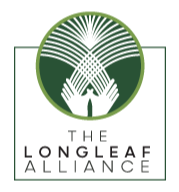Webinars and Videos
You can customize your learning with a selection of webinars and videos about landscape conservation and working lands. View the videos you want – on your own schedule.
Grazing Gone Native
Producer Drexel Atkisson talks about role of NWSFs in his grazing system in dealing with drought.
Grazing Management Minute: Establishing Native Warm Season Grasses
In ODA's latest Grazing Management Minute, join Quail Forever's Jason Jones and Clinton County farmer Nathan Rice to learn more about establishing native warm season grasses.
WLFW Northern bobwhite, Grasslands, and Savannas Framework - Partners’ webinar 3/2/2022
On March 2, 2022 Bridgett Costanzo of NRCS's Working Lands for Wildlife and Jessica McGuire of QF presented on the WLFW framework for NOBO, grasslands and savannas. Ms. Costanzo presented on the content of the new framework document, the priority areas and conservation practice goals set by the 24 NRCS state offices, and responses received from the needs assessment survey. Ms. McGuire presented on staffing and monitoring plans associated with launching this framework.
WLFW East Region Conservation Webinar Series: Northern Bobwhite Session #13 “Quail Harvest Management”
Session 13 of the “Northern Bobwhite” mini-series was presented by Dwayne Elmore with Tall Timbers. This session focuses on the basics of harvest management and the science behind it. Topics covered include compensatory vs additive harvest, historical context about small game regulations, and bobwhite population ecology basics.
Northern Bobwhite Grasslands and Savannas Framework
Presented by Bridgett Costanzo, NRCS Working Lands for Wildlife regional coordinator.
WLFW East Region Conservation Webinar Series: Northern Bobwhite Session #12 “Precision Ag and Bobwhites”
Session 12 of the “Northern Bobwhite” mini-series was presented by Jacob Taylor with Quail Forever in Tennessee. This session focuses on the basics of precision ag and how to use it to create bobwhite habitat. Topics covered include precision ag definition, return on investment, and the economics of including various practices into a conservation plan.
Q&A Session: Bridgett Costanzo, Dr. Jessica McGuire & Dr. James Martin
Question & Answer session at the end of the WLFW Northern Bobwhite, Grasslands and Savannas Partnership Meeting. February 24th, 2021.
WLFW Pollinator Conservation Webinar Series: Session # 12 Maintaining Pollinator Habitat
Session 12 of the WLFW East Region Conservation Webinar series was presented by Brittney Viers, PF/QF’s Tennessee State Coordinator. This session focuses on how to properly maintain pollinator habitat and is the last session in the pollinator series. Topics covered include the history of Southern Grasslands, designing adequate seed mixes, utilizing native seed banks, planting methods, and management techniques.
WLFW East Region Conservation Webinar Series: Northern Bobwhite Session #11 “Bobwhites in Working Grazing Land in Eastern Kentucky”
Session 11 of the “Northern Bobwhite” mini-series was presented by Doug Mitchell with the University of Tennessee. This session focuses on research done in eastern Kentucky on pasture lands. They looked at the differences for bobwhite probability of use in cool season grass pastures vs native warm season grass pastures as well as some other variables. Topics covered include methods for trapping and vegetation surveys and results of the study.
More Quail Per Bale: Precision Conservation for a More Sustainable Future
How farming and quail management can be compatible on working lands.
Perspectives & Tips on Field Delivery of WLFW-NOBO: Dr. Jessica McGuire
Dr. Jessica McGuire presenting at the WLFW Northern Bobwhite, Grassland and Savannas National Partnership Meeting. February 24th, 2021. Jessica is the Quail Forever National Coordinator for WLFW NOBO.
WLFW Pollinator Conservation Webinar Series: Session # 11 PF/QF’s Pollinator Habitat Program
Session 11 of the WLFW East Region Conservation Webinar series was presented by Kim Cole, PF/QF’s Habitat Education Program Manager. This session focuses on resources for hosting pollinator events and is the second session on “pollinator outreach” in the series. Topics covered include Pollinator Habitat Outreach Program, Habitat Education Resources, and Milkweed in the Classroom.
WLFW East Region Conservation Webinar Series: Northern Bobwhite Session #10 “Decision Support Tool: Managing Timber and Quail”
Session 10 of the “Northern Bobwhite” mini-series was presented by Daniel Crawford with the University of Georgia. This session focuses on a new app that helps in making decisions for pine management and wildlife objectives in Georgia. Topics covered include background of general pine plantation management, motivation to create this tool, experiment design, and a demonstration of this app.
Regenerative Agriculture: No-Till Farming
Gabe Brown, legendary Rancher from Bismarck, North Dakota, discusses how Regenerative Agriculture is a solution to local and global challenges.
Northern Bobwhite Trends and Landscape Needs: Dr. James Martin
Dr. James Martin speaking at the WLFW Northern Bobwhite, Grasslands and Savannas National Partnership Meeting. February 24, 2021. James is an Associate Professor at the University of Georgia.
WLFW Pollinator Conservation Webinar Series: Session # 10 How to Do a Pollinator Outreach Event
Session 10 of the WLFW East Region Pollinator Conservation Webinar series was presented by Catherine Beall, South Dakota’s Monarch and Pollinator Coordinating Wildlife Biologist. This session focuses on how to host a pollinator outreach event and is the first session on “pollinator outreach” in the series. Topics covered include the first steps to consider when organizing an event, assembling an agenda, how to advertise, how to prepare the week of the event, things to consider on the day of the event, and follow-up after the event.
WLFW East Region Conservation Webinar Series: Northern Bobwhite Session #9 “Brood Rearing Habitat”
Session 9 of the “Northern Bobwhite” mini-series was presented by Justin Hill with University of Georgia. This session focuses on research looking at brood rearing habitat for bobwhite quail. Topics covered include life history of bobwhite quail, bobwhite chick ecology, and brood rearing habitat.
Tractors and accidents
From seasonal discing to cutting fire breaks to planting or spraying, a tractor is a staple in bobwhite habitat management. Marion Barnes talks about how to keep this big piece of metal from injuring you.
Progress, Goal-Setting Spreadsheet, & Next Steps: Bridgett Costanzo
Bridgett Costanzo presenting at the WLFW Northern Bobwhite, Grasslands and Savannas National Partnership Meeting. February 24, 2021. Bridgett is the Regional Coordinator for WLFW, NRCS
WLFW Pollinator Conservation Webinar Series: Session # 9 Pollinators & Forestland-Underappreciated Pollinator Habitat
Session 9 of the WLFW Pollinator Conservation Webinar series, presented by Kass Urban-Mead, Pollinator Conservation Specialist for the Xerces Society and a Partner Biologist with the USDA Natural Resources Conservation Service. This session focuses on the relationship of pollinators and forestland. Topics covered include an introduction to bee diversity and forest habitats, how bees and other pollinators use the woods, and forest health and pollinators.


























